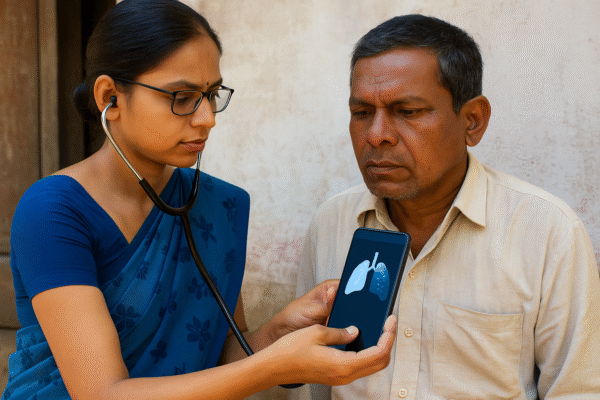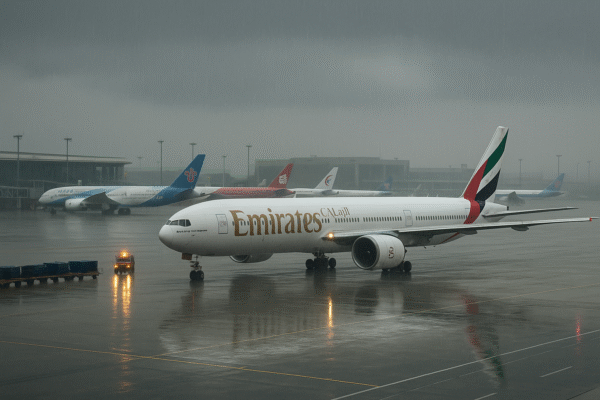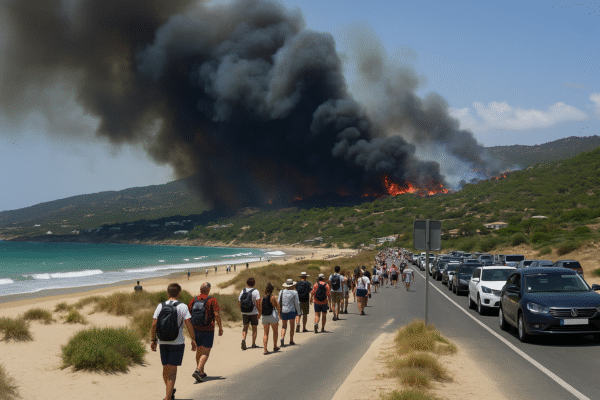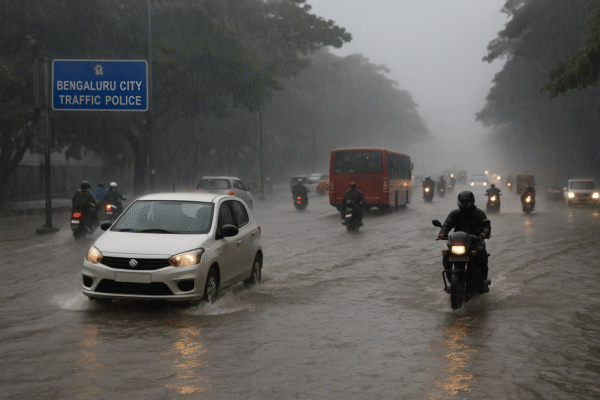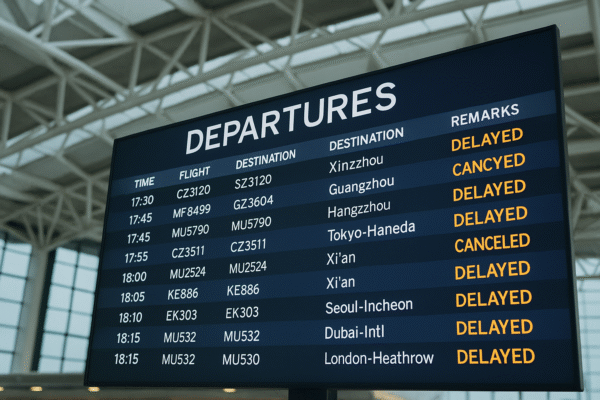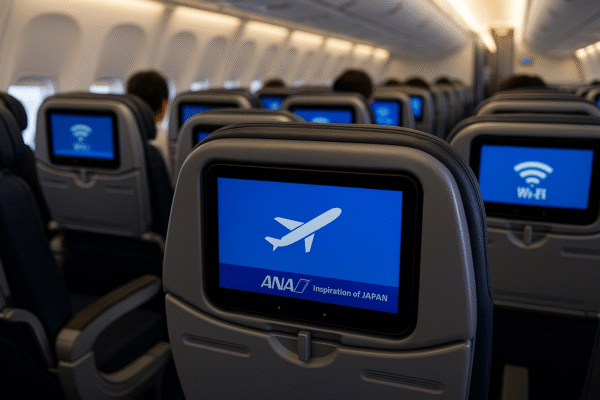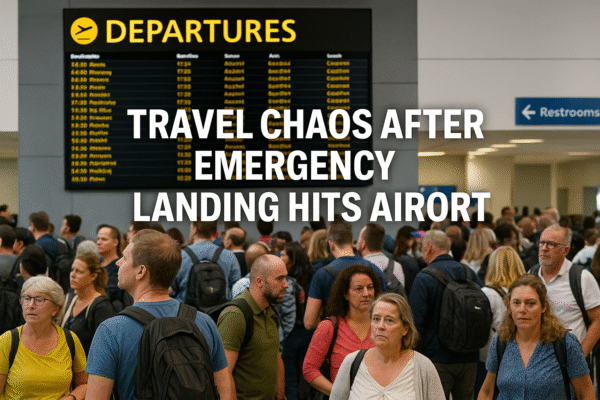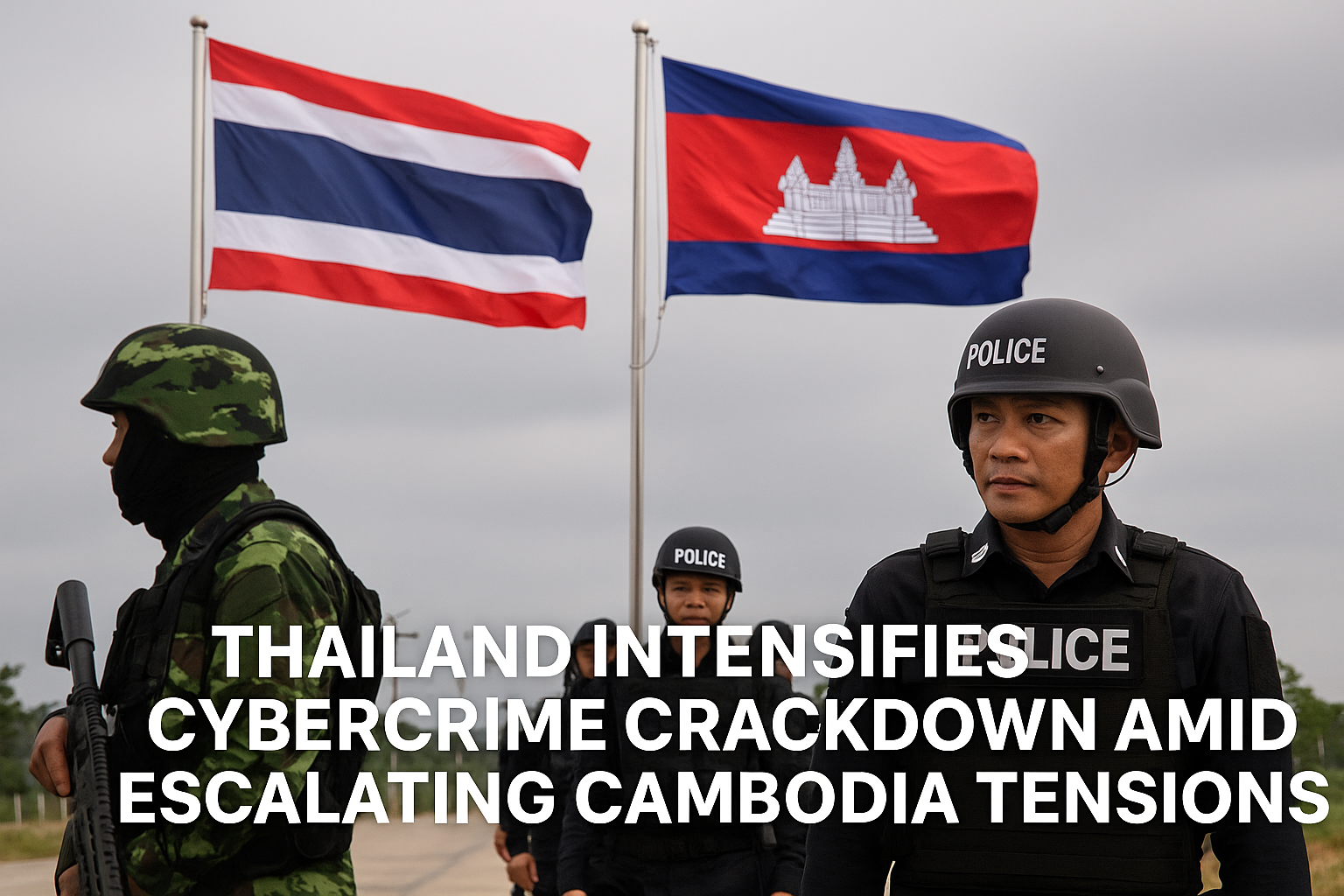In a significant move that could reshape tourism and security dynamics in Southeast Asia, Thailand has announced new, stringent measures to curb cybercrime linked to Cambodia, following heightened tensions along the shared border. Prime Minister Paetongtarn Shinawatra unveiled the crackdown during a press briefing this week, signaling a proactive stance against digital fraud operations and escalating bilateral strains.
The crackdown follows a deadly confrontation on May 28 in a disputed territory along the Thai-Cambodian border, which resulted in the death of a Cambodian soldier. Since then, relations between the two neighbors have deteriorated, prompting Thailand to implement a mix of tourism, border, and economic policies aimed at pressuring Cambodia’s administration, particularly over its role in harboring transnational scam operations.
Cybercrime Crackdown Targets Cambodia-Based Operations
Citing a recent UN report highlighting Cambodia as a major cybercrime hub, Thailand’s new measures focus on limiting digital, physical, and economic infrastructure that may support illicit activities. Prime Minister Paetongtarn confirmed that Thai authorities are now preparing to cut internet service links to known Cambodian military and government sectors suspected of enabling online scam centers.
According to the United Nations Office on Drugs and Crime (UNODC), scam operations across Southeast Asia have evolved into transnational threats, with centers exploiting victims globally via romance scams, fake investment schemes, and illegal betting websites. Cambodia, along with Myanmar and Laos, is repeatedly mentioned in investigative reports as a haven for such activity.
Tourism Sector Feels the Impact: Casino Travel Under Scrutiny
As part of the new enforcement, Thailand will bar outbound casino tourism to Cambodia, particularly to gambling hotspots like Poipet and Bavet, both bordering Thai provinces. Additionally, stricter airport screening is being implemented for passengers flying to Siem Reap, with a special focus on identifying travelers whose purpose is gambling-related.
While officials have yet to disclose the specific criteria for separating casino-bound tourists from general travelers, Thai authorities emphasize that exceptions will be made for students, individuals seeking medical treatment, and those purchasing essential goods.
Siem Reap, a popular gateway to Angkor Wat, typically draws a large volume of Thai tourists during long weekends. The new policies could disrupt travel flows and affect the hospitality economy in border towns dependent on Thai spending.
Thailand Evaluates Export Blocks Amid Escalating Retaliation
In retaliation to Thailand’s measures, Cambodia has reportedly blocked internet services, electricity, and fuel imports from Thailand. According to the Cambodian Ministry of Commerce, Thailand contributes nearly 30% of Cambodia’s monthly gasoline imports and 4% of its liquid natural gas (LNG) supply. Analysts warn that prolonged disruption in cross-border trade could affect both economies, especially in border provinces.
The Thai Prime Minister said the government is considering countermeasures, including restrictions on the export of goods that may facilitate cybercrime in Cambodia. Items under review include electronics, high-speed internet equipment, and SIM cards.
Political Ramifications and Public Outrage in Thailand
The crisis has political undertones. Prime Minister Paetongtarn, daughter of former PM Thaksin Shinawatra, is under fire for her handling of the conflict. Nationalist factions accuse her of being overly conciliatory toward Cambodian leadership. Controversy deepened when a leaked phone call between Paetongtarn and Cambodian Senate President Hun Sen surfaced last week. In the recording, she reportedly referred to a Thai army commander stationed at the contested border as “an opponent,” prompting backlash from conservative political figures and military veterans.
Several nationalist groups have since called for her resignation, organizing rallies in Bangkok this week.
Tourism Sector Caught in the Crossfire
While the broader tourism sector in Thailand remains operational, stakeholders are concerned that the border dispute may deter regional travel, particularly group tours and cross-border excursions between Thailand and Cambodia. Poipet, a major casino town, sees thousands of Thai day-trippers each week, many of whom may now cancel travel plans due to increased scrutiny and restricted crossings.
In a joint statement, the Thai Travel Agents Association (TTAA) and the Association of Thai Travel Agents (ATTA) urged both governments to resolve the tensions diplomatically to avoid economic fallout. “While national security is paramount, any prolonged tension could significantly impact cross-border tourism and logistics,” the statement read.
International Coordination and Outlook
Thailand has also indicated plans to coordinate with international organizations such as INTERPOL and ASEAN to combat Southeast Asia-based cybercrime networks. A spokesperson from the Ministry of Digital Economy and Society noted that cross-border tech crimes are too complex to tackle in isolation and will require regional cooperation, particularly with Vietnam, Singapore, and Malaysia, all of whom have experienced rising levels of digital fraud targeting their citizens.
Conclusion: A Test of Diplomacy and Tourism Resilience
As tensions escalate, Thailand’s dual-pronged strategy—targeting both cybercrime and casino tourism—marks a decisive turn in its foreign policy and internal security. While aimed at dismantling scam networks and protecting citizens, the ripple effects could reshape the regional tourism landscape, particularly in Cambodia’s casino towns and among Thai travelers seeking cross-border leisure.
Whether these steps yield meaningful results in combating crime without destabilizing the broader tourism economy remains to be seen. What is clear, however, is that Southeast Asia’s delicate balance of diplomacy, security, and tourism is once again under pressure.
For more travel news like this, keep reading Global Travel Wire



